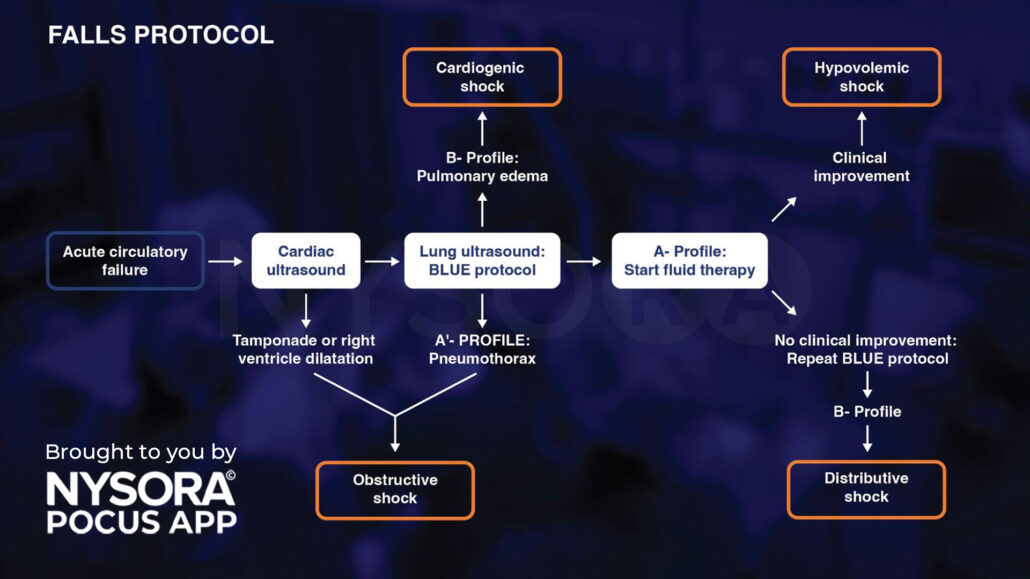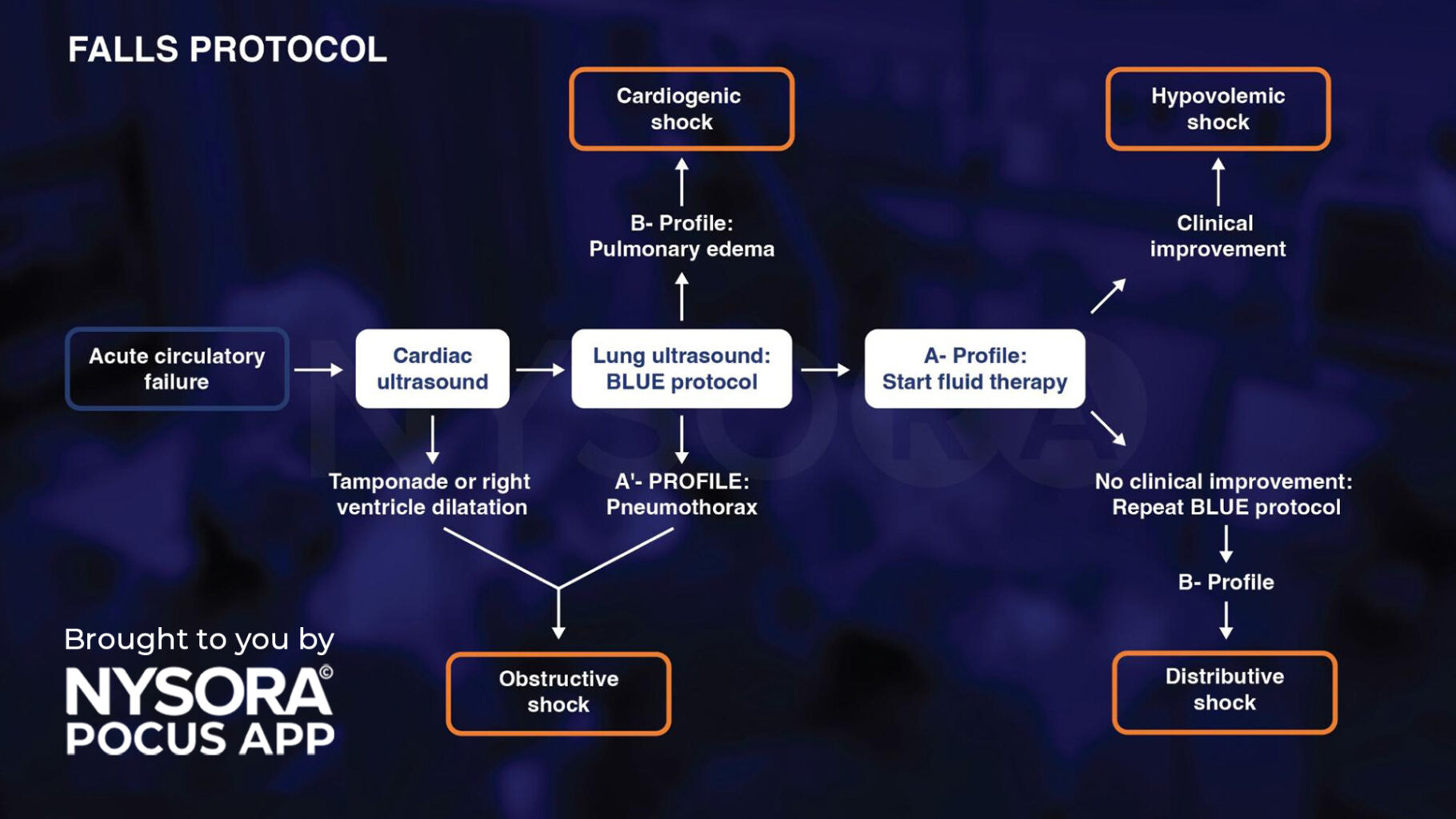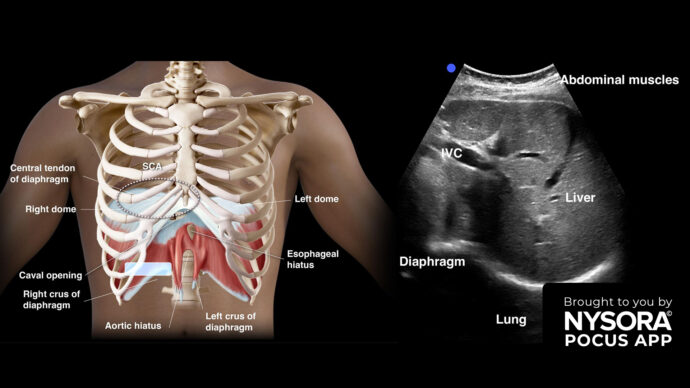
Acute circulatory failure: The FALLS protocol
The FALLS (Fluid Administration Limited by Lung Sonography) protocol is a suggested approach for acute circulatory failure or undifferentiated shock (obstructive, cardiogenic, hypovolemic, distributive). Next to a simple cardiac ultrasound to rule out pericardial tamponade or pulmonary embolism (right ventricle dilatation), it uses the BLUE protocol as well as fluid therapy to guide the type of shock.
This overview illustrates how the FALLS protocol can be used to differentiate between the different types of shock in the setting of acute circulatory failure.

Adapted from D. Lichtenstein.
More tips:
- The fluid administration within the FALLS protocol is based on the fact that A-lines transform into B-lines at pulmonary artery occlusion pressures of 18 mmHg. This allows the use of lung ultrasound for direct assessment of lung water in critically ill patients.
- Patients presenting with B-lines on admission can have no transformation from A-lines into B-lines. This is one of the main limitations of the FALLS protocol.
- The correlation of an A-profile with a pulmonary artery occlusion pressure equal to or lower than 18 mmHg has a 93% specificity and 97% positive predictive value.
- It is important to remember that the FALLS protocol is a direct product of the BLUE protocol. It indicates a high likelihood of the type of shock, which is not 100%.
Unleash the potential of POCUS with NYSORA’s POCUS App and elevate your practice, expand your capabilities, and deliver exceptional patient care. Download HERE.


